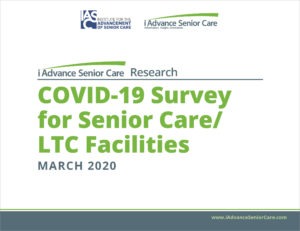Focus groups: A window into your organization
Person-centered care is now the ubiquitous ideal across the spectrum of healthcare settings. A core component of Planetree’s work in supporting the implementation and evaluation of person-centered care across healthcare settings is conducting focus groups with key healthcare stakeholders, including residents of long-term care (LTC) settings, their family members and supervisory and nonsupervisory staff. By listening to the voices of these stakeholders, Planetree identifies their core concerns, characterizes their experiences and uses this knowledge to help healthcare organizations strategize solutions for meeting the needs of their clients and communities.
In 2013, Planetree began extending the use of these focus groups through the Harvey Picker Center for Innovation and Applied Research in Long-Term Care. The Harvey Picker Center applies focus group findings to help inform the identification of key topics that could be addressed through applied research and an annual competitive grants program. The center also publishes an annual Voices of Long-Term Care report to give a national outlet to the perspectives and concerns of core LTC stakeholders.
The recent Voices of Long-Term Care report presents findings from 83 focus groups conducted with 569 key LTC stakeholders across eight LTC communities over the past 14 months. By examining the focus group data for similarities in the experiences and perspectives reported across individuals and across stakeholder groups, 24 broad themes were identified. Those themes are categorized as organizational strengths or opportunities for improvement with regard to meeting the needs and preferences of the stakeholder groups.
The report presents all of these themes paired with representative quotes from the organizational stakeholders discussing these issues. From among the full set of themes presented in the report, a sample of three themes reflecting organizational strengths is discussed here.
WHAT WE LEARNED
A variety of factors emerged as organizational strengths, including staff commitment to residents, welcoming and barrier-free environments and flexible leadership practices. With regard to the environment, LTC residents and their family members highlighted a variety of features of importance. Broadly, focus group respondents identified environmental cleanliness, homey-ness and hospitality as of key importance to residents and family members.
Cleanliness is critical across all healthcare settings. In U.S. hospitals, patients’ experiences of cleanliness are a component of the national value-based purchasing program, whereby patients’ reported experiences influence hospital reimbursements from the Centers for Medicare & Medicaid Services. One resident concisely reported on the strength of cleanliness, “They keep it very clean; they do an excellent job all the time.”
On the subject of homey-ness and hospitality, the family member of one LTC resident said, “I really felt that it was a home environment for my husband when he was here. The workers were really good. They made you feel like you were welcome. I never felt that I shouldn’t be there.” This remark is reflective of a core component of person-centered care: family engagement.
All organizations achieving patient- or resident-centered designation have successfully implemented person-centered strategies for visitation, such as welcoming visitors 24 hours a day. We also found that access to the outdoors is appreciated, as one resident happily reported: “During the warm months, I can go outside as much as I like. It is more like a resort than a nursing home to me.” Such access to the outdoors also is required for designation status.
Staff members’ dedication to residents is important to both residents and staff. Prior research has shown the employment motivations for LTC staff are grounded in their commitment to and relationships with residents. As one staff member reported during a focus group: “We are here for the residents. Make them smile, laugh. Anything that can make their day.”
And LTC residents appreciate staff members’ commitment to helping them every day. As one resident explained, “The staff are always there, and if the people need help, they do that.” This emphasis on resident-staff relationships and compassionate human interactions are a hallmark of residents’ experiences in LTC communities that have received resident-centered designation.
For staff, we found that leadership flexibility around staff scheduling helps staff feel supported. According to one direct care staff member, “Leadership understands if we have a family emergency. If we have to go, they say, ‘go.’ There is no punishment. It is very supportive.” Similarly, another direct care staff member explained: “If you are sick, you are sick. You don’t hear attitude when you call in to tell someone. They want you to get better. They understand. That is really nice.”
Leadership practices that support staff to provide person-centered care were recognized as critical to the Harvey Picker Center steering committee, and two of the 2014 grants being supported by the Harvey Picker Center focus on developing person-centered LTC leaders.
THE VALUE OF FEEDBACK
Listening to the voices of LTC residents, family members and staff is a simple and straightforward way to learn what matters to these key stakeholders, to understand their experiences and perspectives and, ultimately, to help advance person-centered long-term care. We’ve been able to apply extensive experience with healthcare stakeholder focus groups to community-level performance improvement, the development and deployment of the designation program and now to the development of an annual LTC research agenda and Voices of Long-Term Care report.
Michael Lepore, PhD, is Planetree’s director of quality, research and evaluation and is an adjunct assistant professor in health services, policy and practice at Brown University. A sociologist by training, Lepore transitioned to health services research after working as a nursing assistant in long-term care. His recent research examines healthcare quality, access and equity, with publications in The Gerontologist, Journal of Palliative Medicine and Archives of Internal Medicine. With Planetree, Lepore’s work focuses on implementing and evaluating patient-centered care across the spectrum of healthcare settings internationally.
Related Articles
Topics: Articles , Executive Leadership , Facility management , Leadership , Operations , Staffing











